第18章
It was a beautiful spring day in May, 1262, that Norman of Torn rode alone down the narrow trail that led to the pretty cottage with which he had replaced the hut of his old friend, Father Claude.
As was his custom, he rode with lowered visor, and nowhere upon his person or upon the trappings of his horse were sign or insignia of rank or house.
More powerful and richer than many nobles of the court, he was without rank or other title than that of outlaw and he seemed to assume what in reality he held in little esteem.
He wore armor because his old guardian had urged him to do so, and not because he craved the protection it afforded.And, for the same cause, he rode always with lowered visor, though he could never prevail upon the old man to explain the reason which necessitated this precaution.
"It is enough that I tell you, my son," the old fellow was wont to say, "that for your own good as well as mine, you must not show your face to your enemies until I so direct.The time will come and soon now, I hope, when you shall uncover your countenance to all England."The young man gave the matter but little thought, usually passing it off as the foolish whim of an old dotard; but he humored it nevertheless.
Behind him, as he rode down the steep declivity that day, loomed a very different Torn from that which he had approached sixteen years before, when, as a little boy he had ridden through the darkening shadows of the night, perched upon a great horse behind the little old woman, whose metamorphosis to the little grim, gray, old man of Torn their advent to the castle had marked.
Today the great, frowning pile loomed larger and more imposing than ever in the most resplendent days of its past grandeur.The original keep was there with its huge, buttressed Saxon towers whose mighty fifteen foot walls were pierced with stairways and vaulted chambers, lighted by embrasures which, mere slits in the outer periphery of the walls, spread to larger dimensions within, some even attaining the area of small triangular chambers.
The moat, widened and deepened, completely encircled three sides of the castle, running between the inner and outer walls, which were set at intervals with small projecting towers so pierced that a flanking fire from long bows, cross bows and javelins might be directed against a scaling party.
The fourth side of the walled enclosure overhung a high precipice, which natural protection rendered towers unnecessary upon this side.
The main gateway of the castle looked toward the west and from it ran the tortuous and rocky trail, down through the mountains toward the valley below.The aspect from the great gate was one of quiet and rugged beauty.
A short stretch of barren downs in the foreground only sparsely studded with an occasional gnarled oak gave an unobstructed view of broad and lovely meadowland through which wound a sparkling tributary of the Trent.
Two more gateways let into the great fortress, one piercing the north wall and one the east.All three gates were strongly fortified with towered and buttressed barbicans which must be taken before the main gates could be reached.Each barbican was portcullised, while the inner gates were similarly safeguarded in addition to the drawbridges which, spanning the moat when lowered, could be drawn up at the approach of an enemy, effectually stopping his advance.
The new towers and buildings added to the ancient keep under the direction of Norman of Torn and the grim, old man whom he called father, were of the Norman type of architecture, the windows were larger, the carving more elaborate, the rooms lighter and more spacious.
Within the great enclosure thrived a fair sized town, for, with his ten hundred fighting-men, the Outlaw of Torn required many squires, lackeys, cooks, scullions, armorers, smithies, farriers, hostlers and the like to care for the wants of his little army.
Fifteen hundred war horses, beside five hundred sumpter beasts, were quartered in the great stables, while the east court was alive with cows, oxen, goats, sheep, pigs, rabbits and chickens.
Great wooden carts drawn by slow, plodding oxen were daily visitors to the grim pile, fetching provender for man and beast from the neighboring farm lands of the poor Saxon peasants, to whom Norman of Torn paid good gold for their crops.
These poor serfs, who were worse than slaves to the proud barons who owned the land they tilled, were forbidden by royal edict to sell or give a pennysworth of provisions to the Outlaw of Torn, upon pain of death, but nevertheless his great carts made their trips regularly and always returned full laden, and though the husbandmen told sad tales to their overlords of the awful raids of the Devil of Torn in which he seized upon their stuff by force, their tongues were in their cheeks as they spoke and the Devil's gold in their pockets.
And so, while the barons learned to hate him the more, the peasants' love for him increased.Them he never injured; their fences, their stock, their crops, their wives and daughters were safe from molestation even though the neighboring castle of their lord might be sacked from the wine cellar to the ramparts of the loftiest tower.Nor did anyone dare ride rough shod over the territory which Norman of Torn patrolled.A dozen bands of cut-throats he had driven from the Derby hills, and though the barons would much rather have had all the rest than he, the peasants worshipped him as a deliverer from the lowborn murderers who had been wont to despoil the weak and lowly and on whose account the women of the huts and cottages had never been safe.